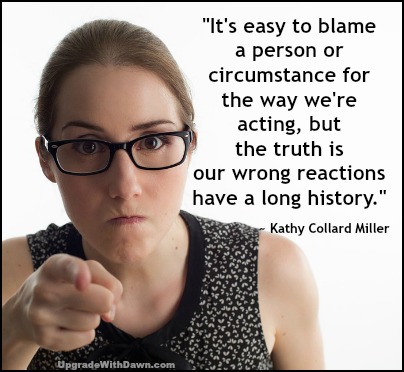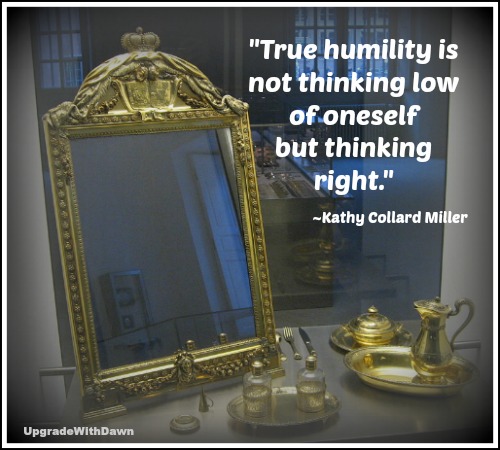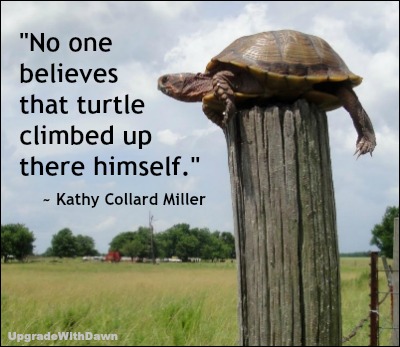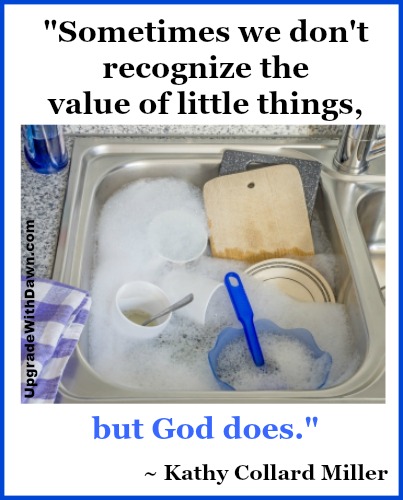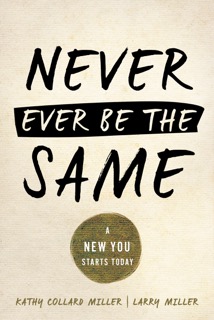Are Resolutions a Good Idea?
Author and speaker Kathy Collard Miller is one smart lady. I've grown to trust her insights. In this UPGRADE for the New Year, she asks us to get real about resolutions.
Kathy asks, "Did you make a resolution but you’ve already forgotten it, flubbed it up or forsaken it? It’s hard to believe a resolution won’t succeed, right?"
I (Dawn) want to say, "Don't go there!" I've blown more resolutions in decades of living than I care to remember. I wish I'd known a wiser perspective.
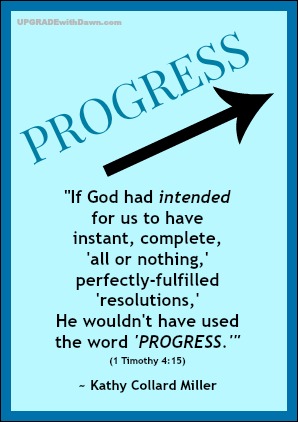 Kathy continues. . .
Kathy continues. . .
Although it’s against common beliefs that resolutions might not be the best idea, they often don’t succeed because of three reasons.
Let’s see what will work instead.
1. Resolutions are often “all or nothing.”
Haven’t we all resolved to:
- “...study the Bible every day”?
- “...never get angry at my children again”?
- “...always be content in everything”?
Do you see those “absolute" words: every, never, always? Who can do that? Only Jesus and we aren’t Him!
How about if we become realistic with our desires?
- “I’m going to study the Bible three times this week for five minutes each?”
- “I”m going to examine when I become angry most often and ask my friend to pray for me at one of those times.”
- “I’m going to choose one area of discontent and surrender to God in that area today.”
Those are reachable, but even if we don’t reach them—
God’s unlimited second chances called “mercy” are always available to re-boot our plans.
2. Resolutions are often beyond our personal resources.
If we are using a huge resolution to try to force change within us, it’s usually beyond our level of maturity or trust in God. Who hasn’t wanted to trust God in every situation?
When I’m thinking that way, I love to be reminded of Jesus’ compassion for the father who replied, “I do believe; help my unbelief” (Mark 9:24 ESV). Jesus healed his son anyway.
God knows the next step for our growth and He’s not impatient with our progress.
3. Resolutions are often beyond our control.
Did you know there’s a difference between desires and goals?
Desires are what we would like but we may not be able to reach them because someone else has to cooperate. You may desire to have a spectacular marriage but guess who else has to have that desire—and take action? Right!
There’s nothing wrong with the desire. The problem is thinking we can force it to happen ourselves.
Different from desires, goals are attainable and within your control. A goal regarding your marriage might be, “I will think of something positive I like about my spouse three times (or five—whatever is a reasonable number) this week.”
Can you do that regardless of your spouse’s involvement? Yes. And it may have an impact on your marriage towards making it spectacular.
These three perspectives can be drawn from First Timothy 4:15:
“Practice these things, immerse yourself in them, so that all may see your progress” (ESV).
The word “progress” is the idea of “a pioneer cutting his way through the wilderness” (Vine’s Biblical Dictionary). Guess how a pioneer does that? One step at a time with a machete or axe. Not one fell swoop with a mile long sword.
If God had intended for us to have instant, complete, “all or nothing,” perfectly-fulfilled “resolutions,” He wouldn’t have used the word “PROGRESS.”
He would have inspired Paul to write “perfection.” Plus, He says, “practice these things.”
That takes time and involves seeking the power of the Holy Spirit moment by moment.
So how are your resolutions going? Great? I hope so. But if not, don’t be discouraged. How can you consider revising them to be more reasonable, attainable, and realistic?
Kathy Collard Miller is a popular speaker and award-winning author of over 50 books. Her most  recent book is Choices of the Heart in the Daughters of the King Bible Study
recent book is Choices of the Heart in the Daughters of the King Bible Study  Series. Kathy has spoken in over 30 US states and eight foreign countries. Find out more about Kathy at her website.
Series. Kathy has spoken in over 30 US states and eight foreign countries. Find out more about Kathy at her website.
 1 Comment → Posted on
1 Comment → Posted on  Thursday, January 26, 2017 at 8:16AM
Thursday, January 26, 2017 at 8:16AM  Desires vs. Goals,
Desires vs. Goals,  Kathy Collard Miller,
Kathy Collard Miller,  New Year,
New Year,  Progress,
Progress,  Realistic goals,
Realistic goals,  Resolutions,
Resolutions,  Upgrade with Dawn Upgrade Your Life
Upgrade with Dawn Upgrade Your Life  Goals,
Goals,  New Year
New Year 




